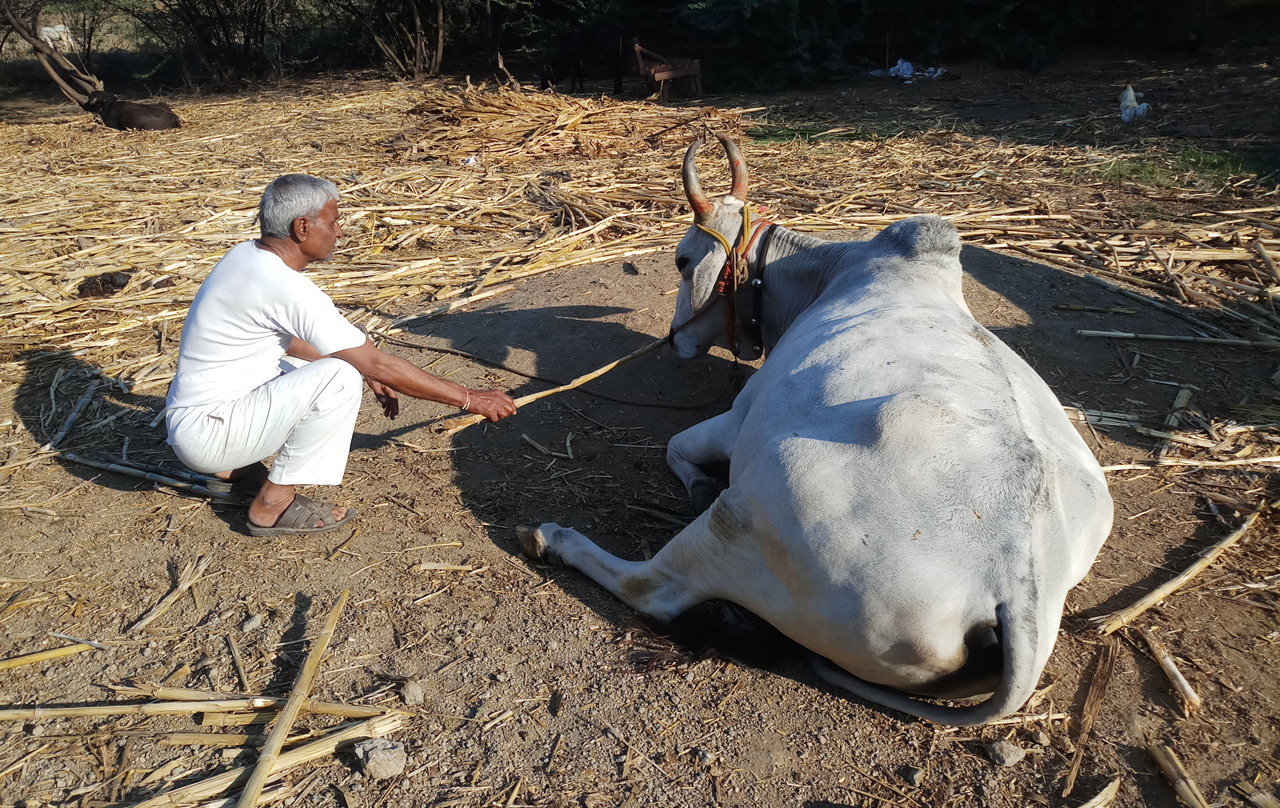A farmer in the Chandanpuri village with his cattle. (Pic: The Voice of Malegaon)
Tahsildar and Taluka Executive Magistrate Nitinkumar Deore has given instructions to Talathis, Gram Sevaks and Agriculture Officers in his jurisdiction to complete e-KYC of calamity-hit farmers. For the purpose, Deore has asked these officers to organise camps at the village level for four days between July 10 and 13. They have also been asked to prepare a final report and then submit it to him on July 15.
These officers have also been directed to take help from the Setu or Aaple Sarkar Seva Kendra operators in their respective areas, so that the large pendency of works can be cleared in a short period of time. The e-KYC of farmers hit by heavy rains, drought and other natural calamities is done to avoid pilferage of benefits and for ensuring the money goes to the rightful receiver.

Laziness shown in doing the e-KYC of calamity-hit farmers will not be tolerated, Tahsildar Nitinkumar Deore
In order to fast track the e-KYC process, a committee at the taluka-level to oversee the exercise has been set up. These revenue officials who are part of this taluka-level panel have been appointed as the Guardian Officers. The Relief and Rehabilitation Department, Government of Maharashtra, gives financial assistance to farmers hit by natural calamities such as drought, heavy and untimely rains.
For the purpose, the Department transfers the monetary aid through the Direct Benefit Transfer (DBT) route. But in order and to continue to get the assistance, farmers are required to complete e-KYC. Recently, at a meeting with Tahsildars held via video conference, Nashik Collector IAS Jalaj Sharma expressed his resentment over pending e-KYCs of calamity-hit farmers.
At the meeting, Sharma also highlighted that the maximum number of pending e-KYC cases in Nashik district were from Malegaon taluka and urged the officials to clear this pendency at the earliest. Tahsildar Deore has told these officials in clear terms that laziness shown in this work will not be taken lightly.
